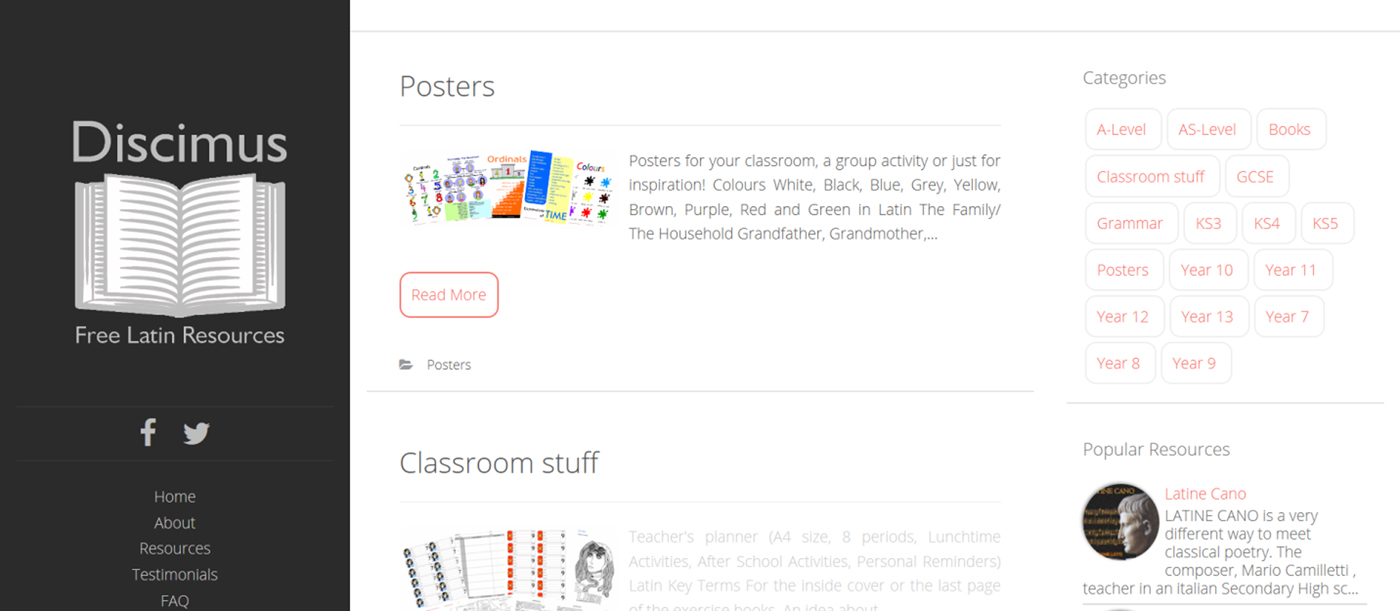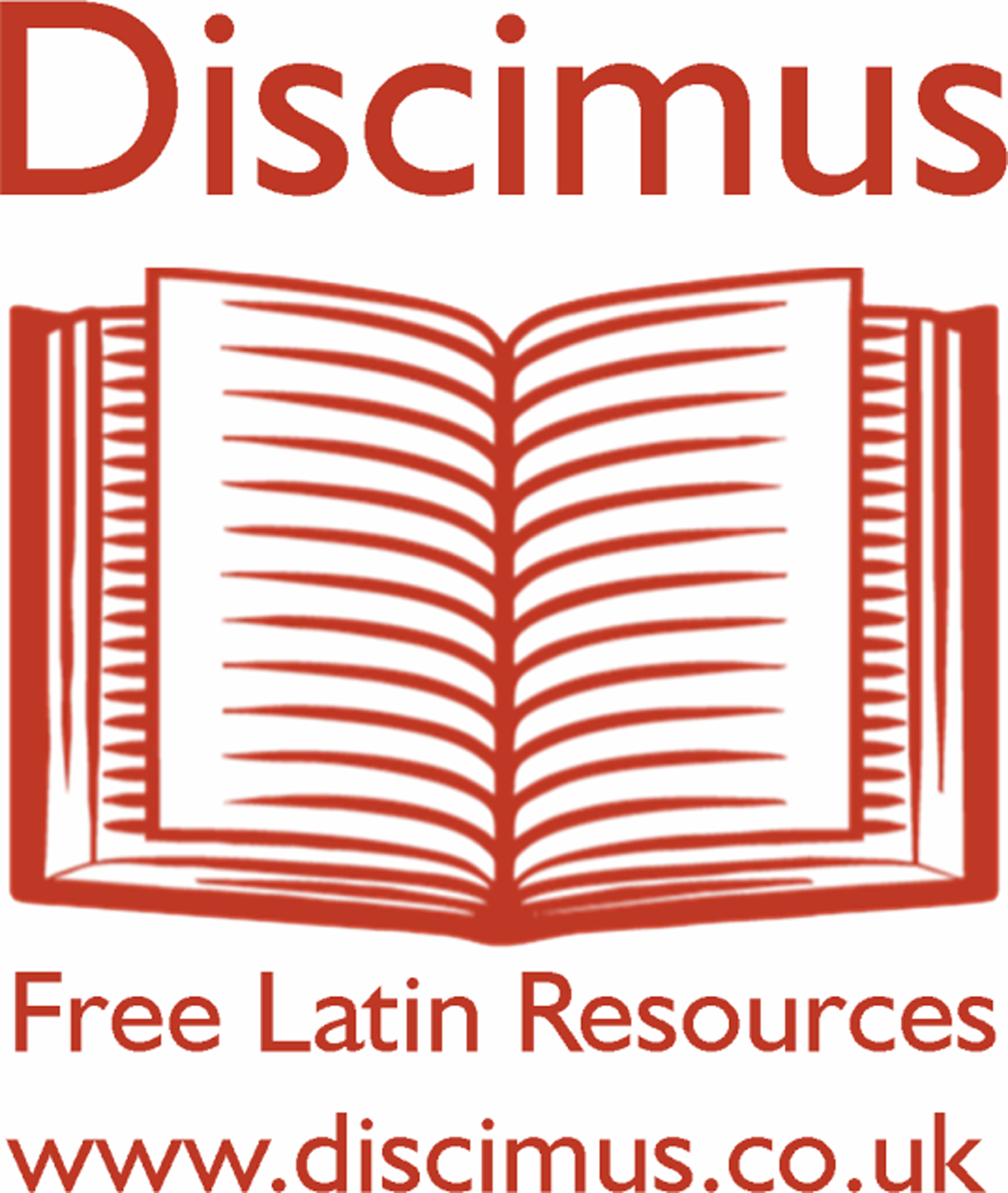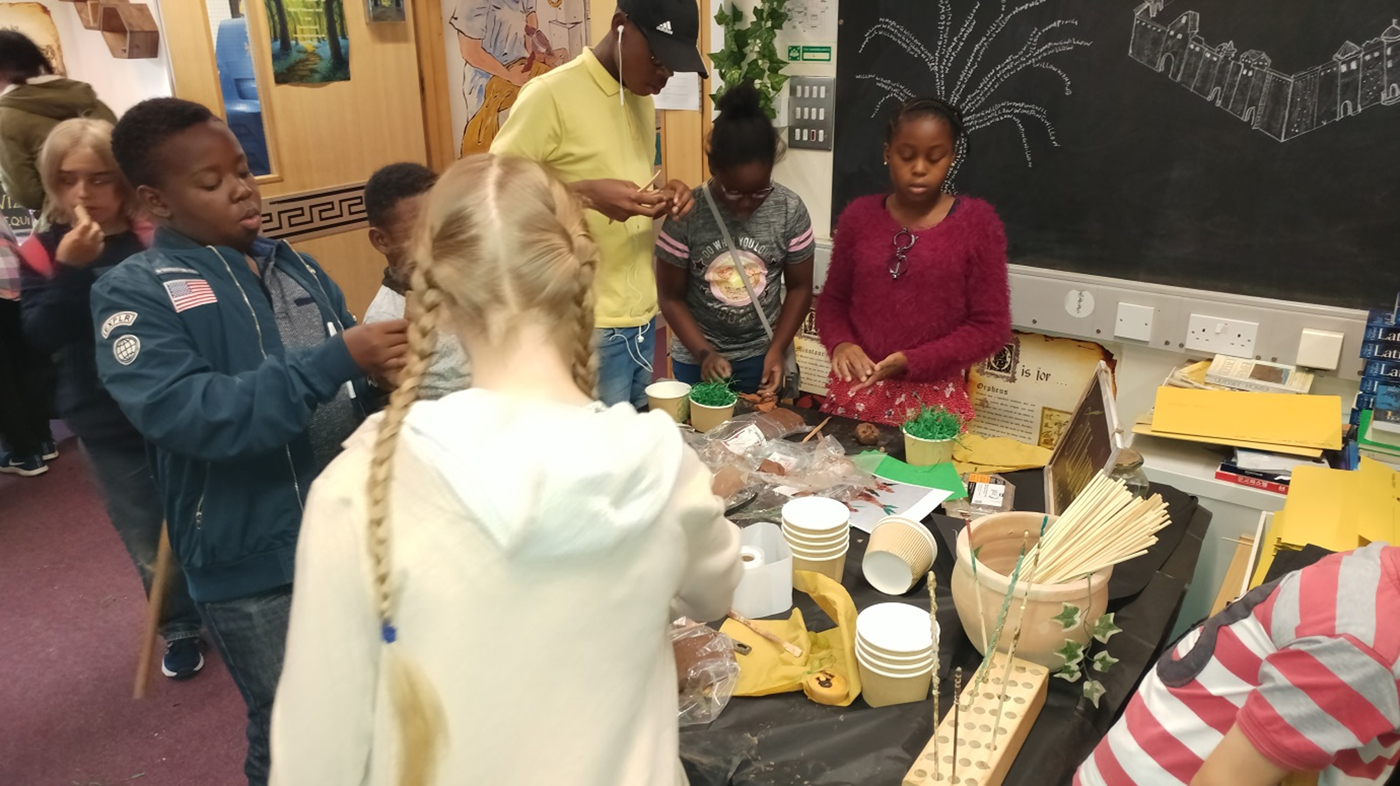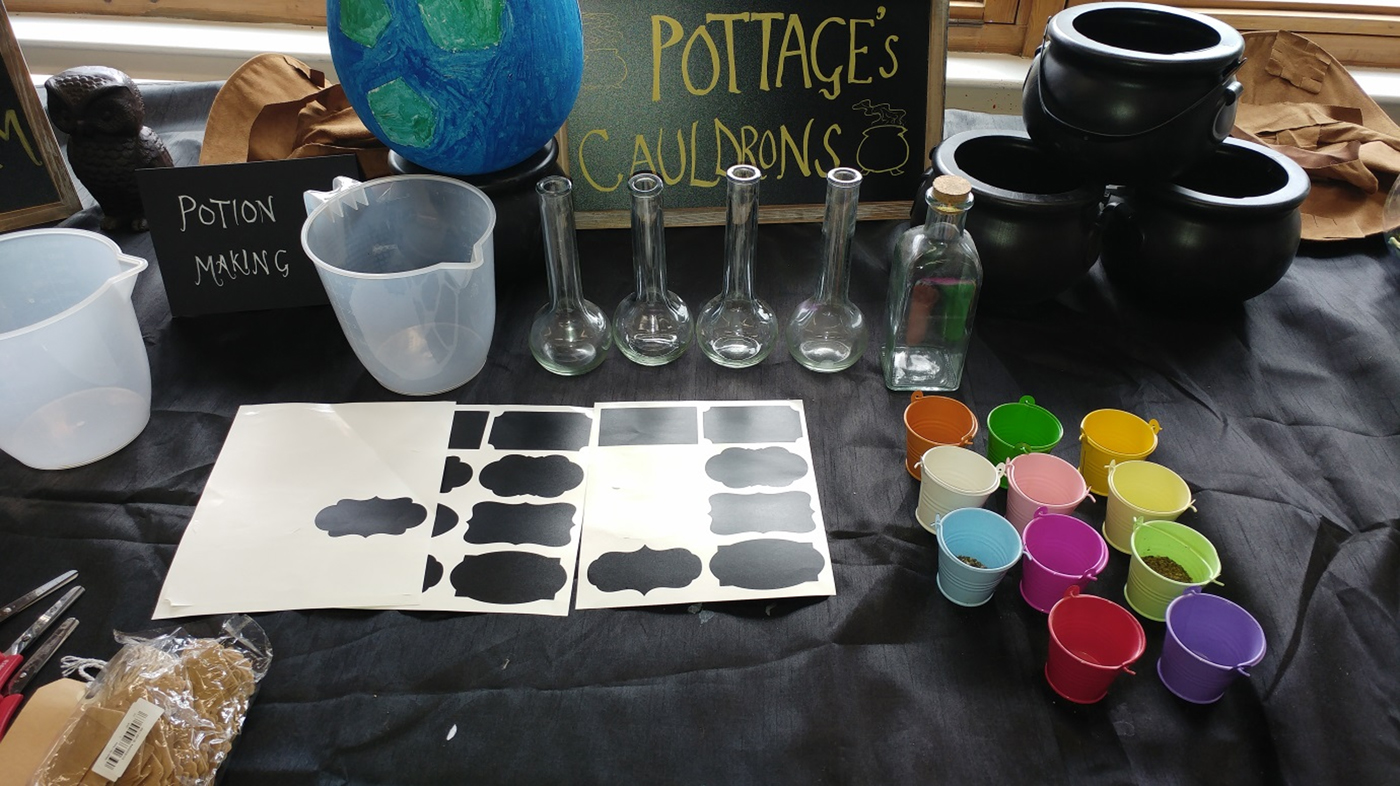On the afternoon of 27th June 2018, the Liverpool Classics Hub held its first event for teachers in the region, at Liverpool College, an all-through coeducational state academy, and home of the Liverpool Classics Hub. The Liverpool Classics Hub was set up in October 2016 with support from Classics for All, and aims to promote and support the teaching of classical subjects in state schools in and around Liverpool. Much of our early focus has been on primary schools, our innovative Ancient Greek Academy, and our training of new Secondary teachers both through the ITT School Direct route and a trial PGCE with Hope University.
Whilst a large part of our work at the hub is about new opportunities for Classics, it has been important to establish contact with local schools and colleges in all sectors who already offer Classics, and they have proved to be enthusiastic and supportive of the Hub. However, a common theme began to emerge of small departments, often only a single Classics teacher, and many teachers said they would love an opportunity to meet with other Classics teachers locally to discuss their experiences, successes and difficulties, and so a plan was hatched, and invitations issued.
In order to include as many schools as possible, our focus for the day was Classical Civilisation, both GCSE and A level, with two clearly delineated sessions enabling teachers to attend either or both sessions, depending on which they taught. It seemed that no two schools taught the same combinations of topics, so our aim was to get people talking and sharing, rather than listening to one person delivering a session, so we chose a more interactive Teach Meet style for the format. One person would lead the discussion, raising questions to bring others in to share their experiences, frustrations and successes, using individual topics to illustrate examples.
On the day we had 16 participants from both the state and independent sectors and 6th form colleges, with another ten schools expressing interest but unable to join us on that date. Our sessions were most ably led and directed by Alastair Thorley, Head of Classics at Stockport Grammar School, and old boy of Liverpool College, making what turned out to be his first return visit to his alma mater! The afternoon was designed to elicit both reflections of the year gone by and plans and ideas for the future.
During the GCSE session we focused on responses to the new specification, the effective use of the textbooks, how to help students remember factual detail and interpret sources, contextualisation and evaluation skills. Discussions ranged from whether to teach one topic after another or both in parallel and employing drama and Google Earth (not necessarily together!) to engage students. Two of our participants had recently finished their teacher training in the North West and keenly shared ideas that they had employed in different placements with different groups, and their insight provided a contrast to that of the more experienced teachers.
After tea and cakes (a must for any good gathering), our A level session started off with thoughts on teaching the new specification and the changes brought about by the new linear exams. The choice of topics and whether to make safe choices or try something different, provoked much deliberation, with Alastair Thorley making a spirited case, and possible converts, for the Invention of the Barbarian! There was examination of source analysis questions, extended responses and the inclusion of the work of scholars in answers. Consideration was also given to the new textbooks, additional reading material, and recruitment of students.
We ended the session with a plenary session, chaired by Hans Broekman, Principal of Liverpool College and Classicist, on Classics in the Northwest, bringing us together. During this we discussed how the Hub could best support schools to ensure that Classics has a vibrant future in the Northwest. The session was undoubtedly a success and enjoyed by those attending and, hopefully, one that we will repeat. Thank you to all those who helped make the day a success, in particular Alastair Thorley and Joanne McNamara.
For further information, see [email protected] and www.liverpoolclassicshub.uk
We are delighted to announce the Iris Festival of Natural History, Art and More on 27th March, 2019. This event will be a large community event to celebrate the Rumble Museum at Cheney School as it completes the Arts Council Accreditation process to become the first museum in a state school.
There will be five main discovery zones: Natural History, Art, Classics, Storytelling and Anthropology. Each zone will contain activities, stalls, exhibitions, workshops, and a wide range of visiting museums with artefacts to handle and explore. There will be shows including animatronic dinosaurs, as well as the opportunity to see birds of prey! There will also be fossils pits, an opportunity to make your own prints at a printing press, the Story Museum's Little Shop of Stories, an ancient Greek daily life pop-up museum, Roman music, as well as a cafe serving refreshments and hot and cold drinks.
The event will include expert talks as well as a wide range of stalls, activities and exhibitions. Visitors will be able to follow an exciting new model Dragonfly Trail as they explore the site, with each discovery zone containing striking decorations, workshops, stalls, performances and activities themed on different aspects of museum learning.
The stalls, activities and exhibitions run from 3.30 until 6pm. It is free and caters for all ages. Primary and secondary school groups are warmly welcome.
The following talks will also take place throughout the afternoon and evening:
3.30–4pm - Professor Richard Fortey, Natural Historian and Palaeontologist
5.15–5.45pm - Peter Randall-Page, Artist and Sculptor, Royal Academician
6–6.45pm - Will Gompertz, BBC Chief Arts Correspondent
The festival itself does not require booking unless you are visiting with a school group.
The importance of sharing teaching materials, ideas and good practices.
It is great to have the opportunity to learn through different approaches, learning styles, a variety of activities, games and worksheets. All of those little things that could have a great impact on delivering any lesson.

Figure 1. | Home Page of Discimus.
Because the wheel has already been invented, our job as teachers is easier as we have access to a colossal collection of resources. But as we learn more about our students and being more experienced, we can identify possible ways to adjust the materials that we use. This will lead us to more engaging lessons, tailored to the needs of our own students. The next step is to share this passion with other teachers and being part of an active exchange of ideas, resources and techniques that can be beneficial for all.
Discimus (www.discimus.co.uk) is a vivid example of such an attempt to ignite this process for Latin teachers, parents who would like to taste what this language is about and students who have a difficult task to accomplish; to learn a language with no native speakers at all!
By sharing your resources about the subject that you teach,
– you promote the subject itself as you give the opportunity to others to have access to a variety of resources
– you help other teachers to deliver their lessons more effectively
– you support students through their learning path
– you can help your own students as you receive feedback about your resources from other teachers
– you understand how you can make your material better
– you can create your network of teachers from around the world that teach the same subject with you
– you are part of a better educational system
– the School where you are working is promoted as well

Figure 2. | Discimus logo.
This CA Latin and Greek CPD Day on 16th June 2018 offered a range of sessions on a variety of topics related to Latin and Greek GCSE as well as Latin A level. The course was designed to be relevant for both new and current Classics teachers. Thus as a prospective NQT, I decided to attend with a view to learning how other teachers had approached teaching different topics within Classics and to meet other teachers in the same field. The day was extremely informative, with an assortment of sessions delivered that focused on differing aspects of Classics up to GCSE and A level. Everyone could attend four sessions throughout the day; teachers went to sessions that related to what they would be teaching in September, as well as sessions that they believed would be generally thought-provoking for their forthcoming teaching practice.
Several of these sessions were presented by John Taylor on the GCSE Latin and Greek OCR specification, which analysed the GCSE papers that Year 11 sat in June, looking principally at teaching the new GCSE specification. This was edifying for current and prospective teachers. Alex Karski led a morning session on Vergil's Aeneid 4 & 6 as GCSE set texts. The emphasis here was on how to engage students so that they are enthused by the narrative of the Aeneid, while still teaching them the translation and stylistic techniques required for their exams.
After lunch, there was the keynote address by Professor Llewelyn Morgan on Erasmus’ labour of Hercules, or How we're all speaking Latin without realising it. This gave the teachers a chance to engage in some higher -level thinking that could potentially be incorporated into A level Latin or Greek classes, or even younger years, to demonstrate to students how ancient texts have been integrated into modern culture over the course of time.
In the afternoon, the session led by Alex Boyt on teaching Latin to dyslexic students was, again, thought-provoking. A particularly striking point from this was the reminder that teaching practice can accommodate those who have dyslexia; we must just take the time in planning to ensure that it does. Alex gave a comprehensive session on what to consider with regards to this.
One of the final sessions of the day focused on ‘Making Classics Fun’. Stuart Macaulay had a room filled with balloons and games, engaging the teachers in activities they could use in the classroom for various language topics. Brainstorming with other teachers was a good opportunity to exchanging ideas and to see how other professionals approached Classics in the classroom.
This CPD day provided the opportunity to meet other Classics teachers from various schools and backgrounds, with many interesting sessions to choose from throughout the day. For a PGCE student about to begin their NQT year the course was extremely informative and provided a lot of ‘food for thought’ on teaching exam classes and Classics more generally - a thoroughly enjoyable day!
I wanted to attend this CPD event as I felt it would be a good opportunity to learn some lessons in preparation for my PGCE course in September. The day was divided into two morning sessions and two afternoon sessions, with lunch and a fascinating lecture on Erasmus’ Adagia by Professor Llewelyn Morgan in between. For each session, there was a choice of three option groups, with the first session aimed towards Latin GCSE, the second towards Latin and Greek GCSE, the third towards Latin A level and the fourth towards Latin and Greek more generally.
I chose to attend the classes which provided a more general overview of teaching Classics and Latin, especially since I am new to learning Greek. The first session was by Katherine Radice, which looked at how to support Latin students who are finding grammar too challenging. Katherine advised to utilise classroom time and homework more effectively: homework should not simply be the revision of endless grammar tables; instead, homework should allow the children to use knowledge learned from classroom experience, as this allows them to engage with the Latin better and feel a sense of progress and personal achievement. For the second session, Alex Karski gave a presentation on teaching Books 4 and 6 of the Aeneid. As Virgil appears frequently on the exam specifications, I felt this would be a useful talk to attend. Alex provided us with many examples of teaching aids, from creating a set text booklet to activities such as ‘thematic bingo’ and storyboarding, which can be applied to other set texts too. For the third session, Katherine Radice gave a talk on improving numbers for A level Latin. I found this talk less relevant for me, though it was interesting to hear her ideas. Students are less likely to choose Latin A level if they are being directly pushed by the teacher and it is more effective if they are able to observe some sixth form classes and talk with current sixth formers. For the final session, I attended John Taylor's talk on the Latin Language Assessment paper, who gave advice for teaching the GCSE language paper. John noted the importance of providing grammar with the appropriate context, such as using English examples, and not to be shy of providing proper explanations to students if they ask for it.
Overall, the CPD day helped me to feel less nervous about starting the PGCE, as it is clear that there is a close network of Latin and Classics teachers who are all incredibly approachable. It was also a good opportunity to meet a few of my fellow course mates on the PGCE next year. I liked that we were able to choose which classes to attend, as this allowed myself and the other teachers to gain the most out of the day.
On the mornings of 27th, 28th and 29th August, the Iris Classics Centre at Cheney School ran its fourth annual summer school! This year, it was themed on the world of Harry Potter, and featured a range of magical themes and activities alongside introductions to Latin and ancient Greek for over 50 seven to 14 year olds. Many were local, but some travelled from places like London and further to attend.
On arrival on the first day, everyone went through the sorting hat ceremony where they were put into one of the four Hogwarts houses, before being able to design their own spell book or Book of Monsters. The first classes then began, delivered by our team of dedicated and enthusiastic volunteer teachers, Alice Barrett, Kinga Nesselfeld, Harriet Heyworth and Elizabeth Haynes. The teachers were very ably assisted by Clara Westhaver, Thomas Griffiths and Aarti Prajapati.
Each class introduced the ancient languages using a range of games, activities and exercises, including plays, races, and more. Many of the lessons and activities explored some of the mythological and linguistic influences of Classics on J.K. Rowling's stories. At the break times, there was a wider range of activities, ranging from making a mandrake, creating a potion, designing a Harry Potter street sign, and making Hedwig out of a fir cone, to creating a winged key, painting spell stones, having your face or arm painted with owls, crests and more, and decorating wands. Students also wrote their own proclamations!


Refreshments included butter beer, owl cakes, bread wands, sorting hats, deathly hallow biscuits, golden snitches, dragon's eggs and a range of potions to sample. On the second day, there was a competition to chalk spells in Latin and other magical things onto the outside space, and on the final day, students came dressed as their favourite characters.
Feedback has been enormously positive, with one attendee writing ‘I wish we could do this every holiday!’. We are very grateful to everyone who gave their time and energy to offer this special opportunity to the local and wider community.
A number of significant changes have taken place since the last report. I am delighted to announce that the historical novelist Lindsey Davis has agreed to become a patron of the PLP and that Professor Catharine Edwards of Birkbeck College, University of London, will join the board of trustees. After many years of tireless work Barbara Bell and Jeremy Paterson stepped down in November 2017 as the Director and Chair (respectively) of the PLP. Dr Elena Theodorakopoulos, University of Birmingham, has become the new chair of the board. As the new Director, I certainly have big shoes to fill. However, I am glad to say that Barbara is not going far and will remain as PLP's Honorary President.
Training has continued to be our main focus. We have a dedicated team of trainers who have travelled far and wide to deliver talks, train PGCE students and teachers and to offer any support needed. PLP is very grateful to Classics for All for their support in funding the majority of this work. The demand for training is high. Please contact me if you would like more information on becoming a trainer. During the last year PLP has also given grants to over 25 schools to help cover the cost of introducing Latin. Details of the application process are on the website.
It has been another very successful year for the PLP Mythology Competition. There were more entries overall; they included drawings, paintings, models in clay, cake and Lego, plays, poems, prose and animations. It was very good to see new schools entering the competition this year, and to continue to receive entries from America and Australia. As ever, the PLP is hugely grateful to the Jowett Trust for generously funding the costs of running the competition. Details of the 2019 competition can be found on the Minimus website http://www.minimus-etc.co.uk .
A date for your diary: a joint venture with the Vindolanda Charitable trust is in the early stages of planning. Look out for the Minimus weekend next May (25th/26th). This particular bank holiday weekend is usually one of the busiest at Vindolanda and we hope that the little mouse will promote even more interest in the site and in Latin.
Hot off the press: Barbara Bell and Helen Forte have written a workbook to accompany Minimus Secundus. This will be available from the beginning of October and can be purchased from Minimus Et Cetera (http://www.minimus-etc.co.uk).
Entering the final weeks of July, I will not deny that a great wave of anticipation was coupled with an overriding feeling of nervousness! As a teacher who has just finished a PGCE and is now entering my NQT year, the thought of mixing with seasoned veterans of Classics teaching was both exciting and frightening in equal measure.
I will start with thanks to our hosts, Uppingham School. The beauty of the venue and the quality of the facilities available really made it the perfect setting for one to immerse oneself in the Classical world.
The highlight of the Summer School, from my perspective, was finding out that my feelings of fear were completely misplaced. The warm and friendly atmosphere that was created by old and new members made it extremely easy to settle in and to allay any fears I had about being out of my depth. In my brief career as a Classics teacher, I have not felt so much pride as I had this week; pride aroused by being part of such a supportive and generous community in the sphere of Classical teaching. I had many burning questions about my upcoming year which no one tired of answering and a long list of worries which were quickly quelled through support of the group. The event has allowed me to come away with a set of contacts who I know will be willing to help, should I ever need it, and this to me is priceless.
The option groups too provided a wide-ranging selection of topics which presented ample opportunity for professional or personal development, from A level Latin set-text preparation to Greek hexameters; all bases were covered in the fantastic programme. I opted to take the opportunity to spur on my preparation of next year's set texts and on A level teaching technique, for which personal thanks must go to the GCSE Aeneid group (Sam Baddeley), the A level Aeneid Group (Lauren Douglas) , the A level Tacitus group (Dr Alison Henshaw) and the Unseen Technique group (Dr Sian Foster). The groups provided lively and thoroughly enjoyable discussion on methods of teaching and offered the chance for comprehensive preparation for September.
The option groups were supplemented by a series of lectures, covering a breadth of topics from Writing for Children (Caroline Lawrence) to Cicero's Pro Milone (Lynn Fotheringham, Nottingham). On the first evening the wonderful Dr Penny Goodman, who gave a lecture on the reception of Augustus by his successors, entertained the delegates – a particular highlight for a slightly biased Augustan historian like myself. Other lectures covered a new secondary Latin course from Hands Up Education (Laila Tims, Hands Up Education), a comprehensive review of the reception of the Argonaut myth by Helen Lovatt (University of Nottingham), a lively lecture on using communicative Latin in the classroom (Mair Lloyd, Cambridge Classics Schools Project), reflections on women and medicine in the ancient world (Rebecca Flemming, Cambridge) and the perks of using Hercules’ films in the classroom (including an argument for the 2014 Dwayne Johnson version) by Emma Stafford (Leeds). The series of lectures was wrapped up by an intriguing talk on the Latin and other languages in the western provinces of the empire by Alex Mullen (University of Nottingham), which included an extremely controversial stance on the character Vilbia, of CLC Book 3 fame. A special thanks must go to Alison Henshaw and Steven Hunt for organising such a stimulating programme of lectures which really did provide abundant opportunities for engagement and critical thought.
The days were long indeed, especially for a rookie like myself. However, the entertainment and the ARLT bar provided the perfect environment for rest and relaxation. My personal highlights were the ARLT quiz and the ARLT entertainment evening (including the songbook) will live long in the memory. The entertainment evening on our last night in Uppingham was one filled with talent and humour. We saw dramatic performances of Sophocles’ Philoctetes and Antigone and Aristophanes’ Frogs. The attendees were also treated to the musical talents of the ARLT choir and solo performances from brave volunteers. Then came the arrival of the songbook – a moment I had heard was the highlight of every ARLT summer school and it did not disappoint. I found myself in a quasi-surreal state as the group belted out ‘Actium’ a Roman version of ABBA's ‘Waterloo’, though indeed surreal it was certainly enjoyable.
A week that started with fear and trepidation had turned into one of the most rewarding weeks of my teaching career so far. The people I met, the advice I received and the comforting words of other attendees, helped to increase my confidence in my own ability as teacher and my belief in my ability to survive the year ahead. I have already pencilled next year's dates into my calendar and look forward to attending in Cheltenham College.



